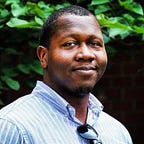When a Superhero is Gone: What Kobe Meant to a Kid from Philly
Like many people, I’ve been processing the tragic passing of Kobe Bryant, who passed away Sunday in a helicopter crash that also claimed the lives of 9 other people, including his daughter Gianna. Seeing the words “Kobe Bryant” with “death” next to them still doesn’t sit right with me. It still feels like a mistake.
On Sunday night, comedian Quinta Brunson tweeted about Kobe’s passing, comparing it to the scene from the movie “Spider-Man: Into The Spider-verse” where the world went into mourning after the death of Peter Parker, the man behind the Spider-Man alter ego. In a day where I struggled to process the news I had received hours ago, this was the most accurate way I could describe it: The Death of a Superhero.
Kobe was a superhero, and, in many of our minds, superheros are supposed to be around forever.
Kobe was a superhero for sports fans all over the world, even more so for Black kids who grew up in the late ‘90s and ‘00s and loved basketball like me.
In some ways, my early experiences with Kobe’s legacy are different than some people I grew up with. Although I admired the great NBA players of my time, athletically, I had little-to-no aspiration of being like Kobe, Michael Jordan or Allen Iverson.
I was mostly unathletic kid who really enjoyed playing basketball as more of a social activity than anything. Which was a strange concept to some, considering that my Dad used to coach basketball and also ran basketball camps and tournaments in the neighborhood. Some hoop dreams deflate, mine never existed. Yet, I still respected Kobe Bryant.
I’d be lying if I painted Kobe as some idyllic Philly hometown hero. There were many aspects of who Kobe was that me and many other kids from Philly couldn’t relate to. Even though he showed love to Philly, we knew he wasn't exactly from where we were from. Kobe went to school in Lower Merion — the suburbs. He spent a chunk of his childhood overseas in Italy with his father, pro basketball player Joe Bryant.
Plus, he wasn’t a gritty, rebellious antihero like our beloved Sixers star Allen Iverson. He wasn’t as iconic as Michael Jordan. He wasn’t as charismatic as Shaq.
Also, he played for the Lakers, a team which some Philly kids disliked in the early 2000s because they beat the Sixers in the 2001 NBA finals. But no matter how much kids like me differed from Kobe on paper, what we loved about him was the motherf — r was good.
No matter how we related to his backstory, his image or what our favorite team was, the main thing many kids connected to was what he represented on the court: Dominance, finesse, precision, ambition and heart…
…And Philly loves people with heart.
I loved the way he thought about basketball, and how he respected it as a craft. At times, humorously, it almost felt as though he respected the craft too much. For years, I’ve had a running joke with my younger brother about Kobe’s deep metaphors for basketball and the artsy, sophisticated ways he’d talk about the game in interviews.
“You see, playing the game of basketball is almost like playing violin, better yet, a cello,” I’d say, in an exaggerated, Kobe-like voice.
In recent years, I’d developed a growing interest in who Kobe was becoming post-retirement. I watched his retirement game and wondered “What’s he gonna do now?”
Well, he did a lot.
He grew into a role as an informal big brother/elder statesmen of the NBA, he became a mentor to countless young players, he grew as an entrepreneur, he wrote a book and he even won an Oscar. But what was most touching for me was seeing him just be a father.
I guess whats even more heartbreaking is that, in a way, a new part of his life was really just beginning.
Honestly, I still have to hold room to grapple with certain aspects of his life & legacy. There were controversies, and there are still conversations happening about some of his misdeeds and faults. I can’t be dismissive of those conversations because even in death, it’s important to analyze people’s legacies, even they are our heroes. But that’s a conversation I’ll have to revisit in a different essay.
I’m no student of Kobe’s game, I didn’t have his jersey, i didn’t watch every game, I never called him my favorite player. Yet, somehow, in the past few days I’ve found myself dealing with real feelings of sadness and loss over a person I’ve never met.
I suppose a reason why losing Kobe is devastating goes back to the idea of the superhero who’s supposed to be around forever, because in many ways, he was.
To put it into perspective, I was born in 1990; Kobe was drafted in ’96 and retired in 2016. When Kobe came into the NBA, I had just finished kindergarten. When he retired, I was a few years out of grad school with a full time job. When you’re only 29 years old, that feels like forever.
Perhaps his loss is another harsh reminder of the fragility of life and a sad reminder that our superheros are mortal. And sometimes, they leave us abruptly, at a young age.
However, I feel grateful for the time that Kobe spent of this earth and the gifts that he relentlessly honed and shared with us in spectacular fashion. I’m grateful for how his passion, drive and skill awed and inspired kids like me both on and off the court.
Thanks, Kobe.
